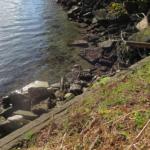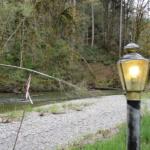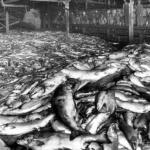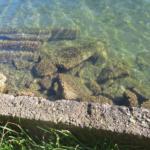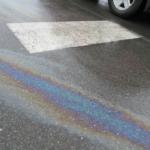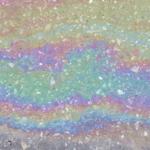Known for its spectacular scenic beauty, the Olympic Peninsula has miles of shoreline along the Strait of Juan de Fuca, rocky beaches, majestic evergreen forests and snow-capped mountains.
The Olympic Peninsula: Our Remote and Rural Location
The Olympic Peninsula is located south across the Strait from Victoria, British Columbia with the Pacific Ocean as our western boundary. Home to Olympic National Park, whales, salmon, elk, bear and eagle.
Historical Accounts of Salmon:
Historical accounts show rivers replete with salmon so thick one could cross on their backs. Tribal people have been integrally connected with area waters and salmon since time immemorial. Tribal fishing villages dotted the Peninsula. Salmon, halibut and other fish and clams were major food sources for tribal families. The US Government signed legally-binding treaties with area Tribes which protected their valued fishing rights.
Non-natives also prized the many salmon species found here and some counted on them for food. Salmon fed many a family during the Great Depression. The annual Salmon Fishing Derby brought participants from throughout the state and our state’s governor here to hand the winner the keys to a new car.
Salmon’s Decline
But salmon numbers have been in decline since before that time. Even here, with our limited development and population, salmon are but a shadow of their former selves. Turn of the century canneries, over fishing, prior logging practices, encroaching human development, and destruction of salmon habitat all contributed to the salmon’s decline.
Rivers have been diked and straightened, water siphoned for human needs, dams built, floodplains developed, estuaries filled, hatchery interference, tree removal from banks, and shorelines armored. Resulting landslides released excess sediment into area streams, smothering salmon eggs. Stormwater runoff and release of wastewater pollutes area waters. Banks without trees results in increased water temperatures which are lethal for fish.
Rivers that previously saw hundreds of thousand of salmon return annually now welcome only thousands or hundreds and sometimes much less. Even here, practically all watersheds bear scars resulting from human impacts upon the land.
Photos of Problems Leading to Salmon Declines
- Armored Shorelines
- Building in Floodplains
- Over Fishing
- Concrete in Water
- Stormwater Parking
- Stormwater Runoff


